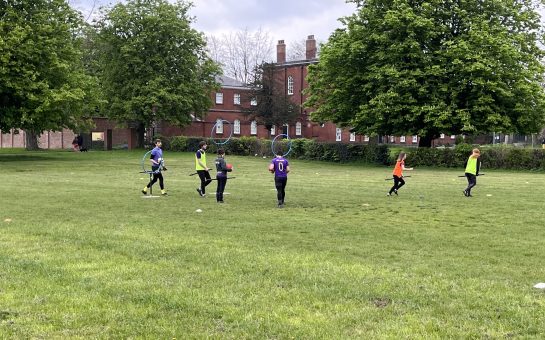Do you modify your accent in various social situations? A Manchester linguist’s study – the first of its kind – shows a third of those surveyed can be made to feel ‘fake’ as a result.
Research from the University of Manchester linguist Dr Alex Baratta shows that Brits with ‘regional accents’ alter their accent as they feel out of place communicating with ‘posh’ sounding people.
Although accent modification happens fairly frequently, Dr Baratta says it can cause anger and frustration and threaten our own personal identity.
He said: “My point is perfectly illustrated by an Ofsted inspector who last year told a Cumbrian teacher working in a Berkshire school to sound ‘more southern’.
“We should acknowledge that any form of workplace discrimination, to include accentism, should not be tolerated in a society which seeks to be more inclusive.”
Dr Baratta surveyed 98 people including children, students and staff from different institutions and schools, the first time anyone has attempted to investigate how accent modification in Britain affects the way we feel about ourselves.
Accent modification is becoming more regular in Britain, proving people feel embarrassed with their accent, more predominantly in pressurised situations such as job interviews, speaking to lecturers or talking on the phone.
“Clearly, most people modify their accent not because they lack pride in it, quite the opposite in fact. It’s actually because they fear the negative perceptions others might have of them if they don’t, especially in work-related contexts,” added Dr Baratta.
Dr Baratta highlighted three examples of his own research to reiterate why “ ‘accentism’ should be taken seriously as a problem which affects many of us.”
- A teacher from Rossendale “felt disgusted” with himself for modifying his accent at a job interview.
- A Mancunian woman feels “fake, angry and upset” for modifying her accent with her lecturers, and believes she is “betraying” who she really is.
- A Liverpudlian stated that accent modification, mostly practiced in business contexts, leaves him feeling “whipped.”
This in mind, MM took to the streets of Manchester to gather the views of the public, the Brummie accent not scoring too highly.
When asked Robert Williams, 54 and from Stockport, said: “My least preferred accent is Birmingham (Brummie) and my most preferred accent is Mancunian.”
Carol Smith, a retired 70-year-old from Timperley, agreed with Mr Williams: “I think that the Birmingham accent is my least preferred.”
Kirsty Whitelegg, a 21-year-old student from Hyde, said: “When under pressure I change my accent depending on who I speak to because I could just sound common.”
Emma Mcdowell, 23, from Manchester and who works as a fundraiser, said: “I do think I change my accent because of my job and to come across better.”
However there were those who didn’t see the need to modify their accent.
Mrs Heal, 41 and a childrens worker, said: “I don’t think I change my accent at all.”
While another Hyde student, 21-year-old Abby Whitelegg, said: “I feel like I am not being myself when I change my accent and I do feel guilty.”
Finally there was Ireland’s Mrs Quinn, 72 and retired, who said her twang was sometimes too much for people.
“I’m from Ireland and I like my accent but others don’t always understand me,” she said.
Main image courtesy of Global News via YouTube, with thanks.


